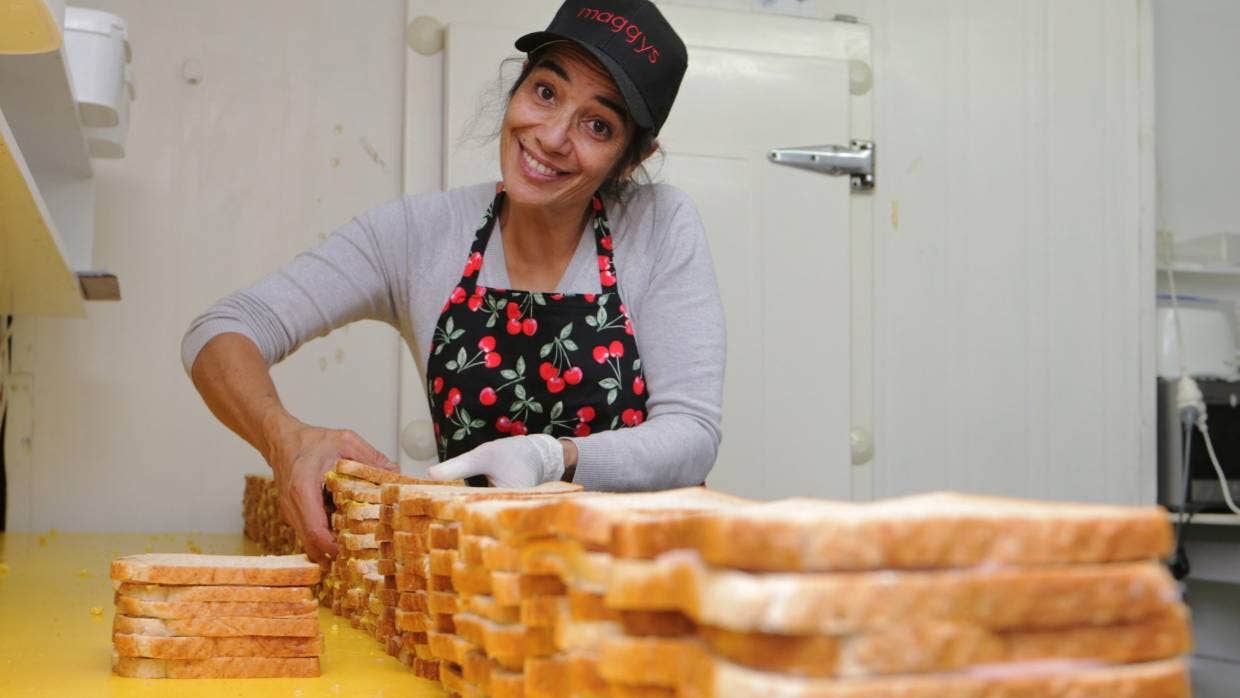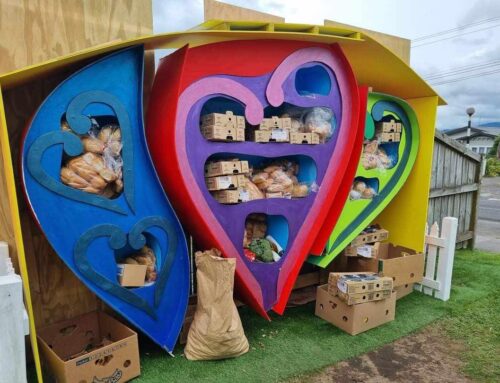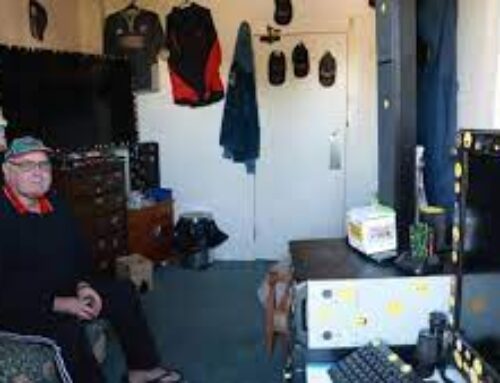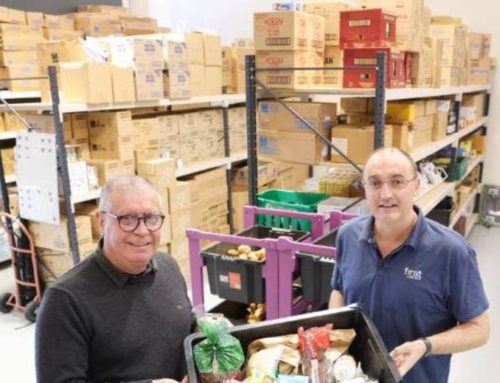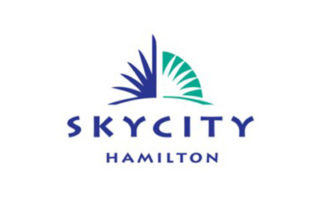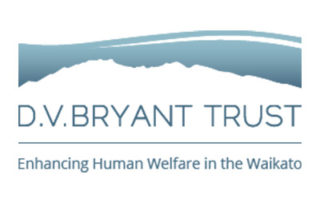Lynette Taiapa’s long workbench is big enough for her to make exactly 100 sandwiches at a time. On this Tuesday morning the bottom layers are laid out neatly before her, in a swift and seamless operation she loads them with fillings, pops the top layer on, cuts them in half, stacks them into a container, then she’s onto the next lot.
Taiapa’s a one-woman production line, working her way through about 30 loaves of bread as we speak. By her 9am deadline each weekday she’ll have made 300 or more whole sandwiches (cut in half, that makes 600 sammies) to feed hungry Hamilton kids.
Taiapa starts at 6.45am, her first job is to boil eggs for the curried egg mixture, the most popular sandwich filling for the young recipients of her work. She makes a mega batch fresh each day, the ingredients being 40 hard-boiled eggs, some curry power, and mayonnaise for creamy texture and extra taste.
This is not haute cuisine, it is old-school fillings for a modern day need.Taiapa also makes ham sandwiches and Marmite sandwiches. When the February 2011 Christchurch earthquake damaged the factory of Marmite-makers Sanitarium and caused a serious shortage of the beloved black spread, Taiapa says they switched temporarily to Vegemite. But they’re well back on Marmite.
Taiapa works and talks, doesn’t miss a beat at her workbench. She is employed by Hamilton business Maggy’s Catering, and she kicks off each day making this mountain of sammies. “I love the idea of being able to feed kids,” she says. “It’s a privilege to do this, I love my job.”
Taiapa’s boss is the small but determined Jan Sosinko, who has owned Maggy’s Catering for more than two decades. Sosinko is in her fifth year of providing sandwiches for Catholic helping agency St Vincent de Paul’s school lunch programme in Hamilton, and also its Vinnies Van, which does nightly food runs in low-income suburbs. Taiapa is employed in the mornings at Maggy’s specially to make the sandwiches, she does about 1200-1400 a week. Roughly half go to schools, the other half to the Vinnies Van.
St Vinnies relays the sandwich orders through to Maggy’s based on the needs of the 18 schools they look after. The number of schools on the programme is up from nine at the beginning of the year. They include primary, intermediate, and a couple of secondary schools. Some only need one or two lunches a day, others maybe 13 or so. Many of the schools are low decile, but not all of them.
Sione Tu’akoi, co-ordinator of St Vinnies Good Neighbour Projects, says the increase in school numbers is because more families are struggling financially. “There is no doubt about that.” He says families they see are typically dealing with rent, hire purchase payments, and other debts. “Children often come last. Our priorities are that we don’t want to see hungry kids at school.” The lunches, and the Vinnies Van run, help take the edge off.
Tu’akoi says bluntly that they wouldn’t be able to run the programme without Jan Sosinko. “I cannot believe what Jan is doing for us. She is amazing, she is a miracle for us.” He is mindful of the impact on Sosinko’s business, he tries not to overload her, and keeps a close eye on sandwich numbers.
Sosinko is an almost reluctant part of this story, but we’re doing it because she needs a bit of help. She had to think about whether she’d talk about the actual dollars and cents of it all. The sandwiches soak up ingredients and money, and Sosinko has been carrying a lot of the cost for a long time. She believes strongly in what she’s doing, driven by her Catholic faith. Her previous accountant told her she had to stop it because she couldn’t afford to keep doing it. She didn’t listen to him, and her work has largely flown under the radar. “If you have faith, it will happen. You just keep doing it.”
Now she’s going public, asking for some support. Her needs are modest. “Some Marmite and mayonnaise would be good.”
Sosinko estimates (conservatively) that the St Vinnies sandwich service (schools and night van) costs just over $22,000 annually. She pays for about $10,000 of this, most of it being for wages. The rest is largely covered by philanthropic funding and food donations.

Sosinko wants to make it clear she’s not asking for $10,000, she reiterates that it’s just some ingredients that would be helpful. The project previously cost her quite a lot more – she paid for many of the ingredients – but she says in a miracle towards the end of last year, they were offered funding from Greenlea Foundation Trust, the charitable arm of Waikato-based Greenlea Premier Meats. Greenlea prefers not to disclose the amount it has pledged, but says it is a most deserving case.
Sosinko says that just before the Greenlea help arrived, she’d told St Vinnies Hamilton manager Mike Rolton that she’d need to charge them $100 a week to defray costs of ingredients. She’d given him the first bill, then the Greenlea miracle happened, and she phoned Rolton to say, “you can tear up the cheque, Mike”.
The other huge chunk of support comes from Pak ‘n Save, Mill St, which supplies fresh sliced wheatmeal bread each day. “We just couldn’t do this without the bread.” Store owner Hamish Walton says he’s more than happy to help, and most of the supermarkets in his group do this kind of thing, one way or another.
Everything helps. Catering spread is provided by food and beverage wholesaler Gilmours, another kind gesture. Sosinko buys the ham at a good rate, and now it looks like they’re onto an anonymous donation of eggs, through connections at St Vinnies. Marian Catholic Primary School, in Hamilton East, has been collecting Marmite and mayonnaise after a plea went into a newsletter. The results are generous, it all goes into the great sandwich-making machine.
Sosinko started small on the sandwiches. A St Vinnies worker approached her some years back to see if he could buy ham wholesale for the project through her business. Sosinko said she’d donate the ham if they sliced it. This went on for a while, and sandwiches were made at St Vinnies HQ by volunteers. Then Sosinko was asked if her team could take over making them, and St Vinnies would pay for the service.
“I said we’d do it without charge, it would be my way of paying it forward. I believe that it’s not an equal playing field, and those of us who have been blessed with a talent, we have a duty to help those who are not as fortunate.”

Sosinko says it seems to her that the mark of a civilised society is how it cares for its most vulnerable. “If children are nourished, they can learn at school, lift themselves up, it will pay off in the future.”
She’s been told by some that her work is enabling careless parents to spend money on drink, gambling, and whatever. Her reply: “I don’t care what led to this (the need for extra food), the kids are going to school hungry, it’s not their fault.”
Sosinko says politicians have no idea how tough things are for some families. Earlier this year, two members’ bills, both aiming to provide free food to children in schools, failed to get enough support in Parliament. “I am appalled by this.”
Sosinko’s staff says quietly – without the boss knowing – that there are other generous things that she does in the community, but she prefers not to talk about this. We’re just here for the sandwiches.
So while we’ve been talking sandwiches, Taiapa has been steadily, methodically, making them. She meets the 9am deadline, bang on; Sione Tu’akoi lifts the boxes into the van, and they’re off on the next leg of the daily journey.
This is not far, just a couple of streets over to St Vinnies HQ, on Frankton’s High St, where four volunteers are waiting to make up the school orders. Each school has a labelled container, the volunteers have half an hour to work through the lists. Lunches comprise sandwiches, a piece of fruit (supplied by the Dole company), and a muesli bar, donated by Hamilton’s Prolife Foods.
After the school orders are sorted, the remainder of the sandwiches are stored until the late afternoon Vinnies Van run to the city’s needier suburbs. Volunteers will hand them out to kids along with drinks, fruit, and any extras they have.
Tu’akoi says school orders ebb and flow, depending on children’s needs. On Tuesday, 15 schools want lunches, and volunteer Jan Rewi hits the road with helper Freedom Tuakura to do deliveries. Rewi has two hours to criss-cross the city, drop boxes at school offices, and pick up empty containers from the previous day. She’s champing at the bit to get away.
Crawshaw School, in Nawton, is on her run, and principal Jill Littlewood welcomes the lunches. Crawshaw orders about 12 each day, and Littlewood says they go down really well with the children who need them. “It’s a nice basic healthy lunch. The kids have a smile on their face when they pick them up.”
Littlewood says there is typically a core group that needs lunch regularly, others come and go, and sometimes families are referred by budget advice services. “There are a lot of factors.”
She says sometimes the lack of a lunch is due to the children’s own mis-organisation, they’ve been expected to make it themselves and haven’t done so. Sometimes families run into a bad time financially at the end of the week when there’s nothing left for lunch. The school has had parents phone to say they can’t send their kids to class because they haven’t got lunch. “We say, send them, and we’ll sort it.”
Crawshaw, a decile 1 school, also runs a KickStart Breakfast programme, and the school has recently been sponsored with a big freezer, regular bread supply and a toasted sandwichmaker by food company Goodman Fielder. Littlewood is delighted. “We can help fix as much as we can; we can make sure they (the kids) are ready to learn. We don’t want them hungry.”
Peachgrove Intermediate principal Louisa Barham says her school values the lunch programme 100 per cent. “They (St Vinnies) are completely responsive, if we ask for more, we get more. It is also discreet.”
She says her staff know their students well, they observe, they shoulder-tap children who they think need it. After that, they leave it up to the kids. Discretion is important, Barham says, because the older children get, the harder it becomes to offer support. Numbers needing the lunches vary, and the school doesn’t keep records of who gets what. Says Barham: “If a child comes to get food, they need it.”
The bulk of children, though, are from families who are struggling financially, and Barham says the key is building relationships with them, looking at ways to support them. The school also runs a breakfast club. Of St Vinnies, she says, “we are so grateful for the service, they are quality lunches”.
The final word here goes to Jan Sosinko. She’s mindful that she won’t be running her business forever, she’s in her 60s, the day may come when she wants to sell Maggy’s. She’d want the sandwich project to be part of the deal. “I’d like to see it set up with so much goodwill that it would just carry on. The need certainly isn’t going to go away.”

